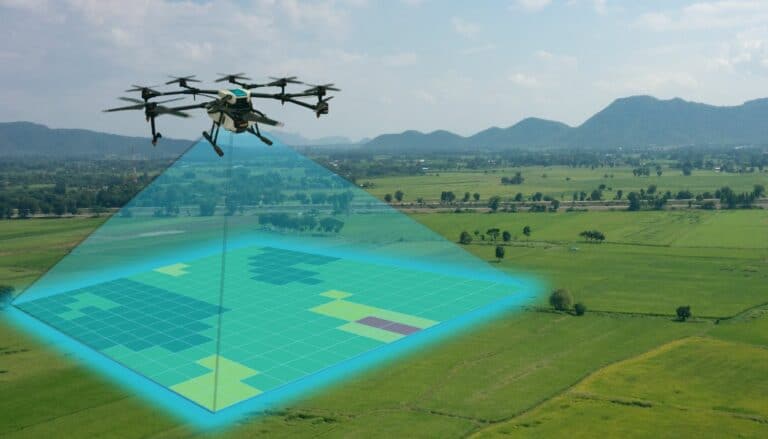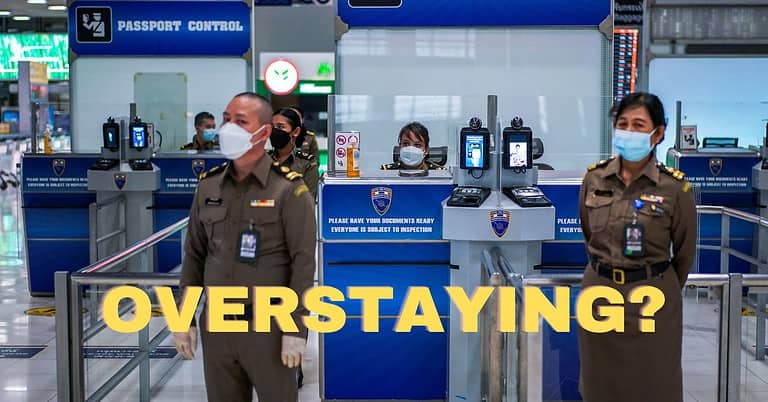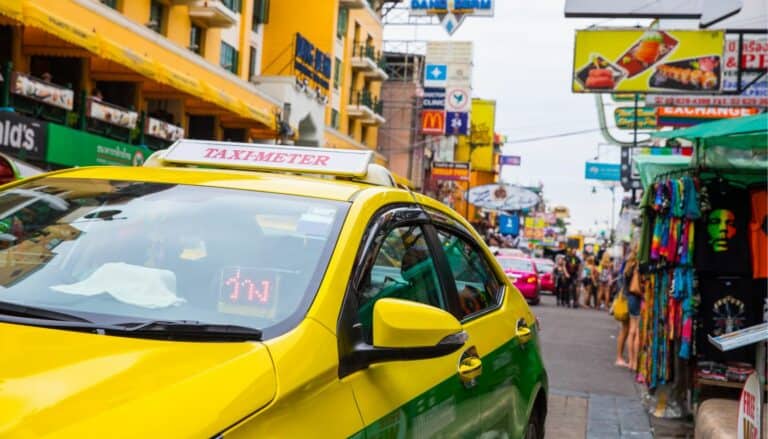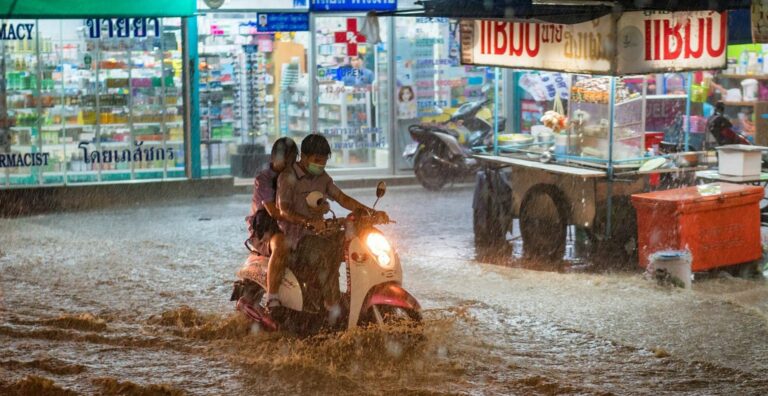Can You Drink Tap Water in Thailand? (How not to get sick)
When traveling to Thailand, one common question that always pops up is: Can you drink tap water in Thailand? As you should, because the last thing you want to happen is being in bed for the entire duration of your holiday.
If you’re short in time and need a quick answer:
Tap water in Thailand is not recommended for drinking, especially for tourists. The water treatment facilities might not be up to the standards of more developed countries, and as a result, tap water may contain harmful contaminants and bacteria. In urban areas, the water might be somewhat cleaner due to more advanced treatment facilities. However, it’s still best to avoid consuming water from the tap.
Personally, my wife and I only use tap water to make coffee, after boiling it. In every other circumstance, we use bottled water. Even for brushing our teeth.
Key Takeaways
- Tap water in Thailand is generally not considered safe for drinking, due to bacteria and the quality of maintenance of the pipelines.
- Contaminants and bacteria can be present in the tap water due to varying water treatment standards.
- It’s advisable to take precautionary measures such as using bottled water or purifying tap water before consumption.
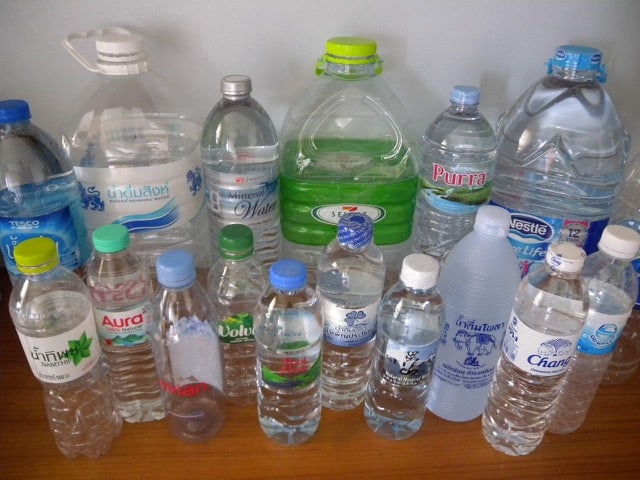
This post contains affiliate links
Some links in this article are affiliate links, which means I may earn a small commission whenever you decide to click on my link and purchase a product or make a booking. This won’t cost you anything more.
You can read my disclaimer here
Overview of Water Quality in Thailand
When traveling to Thailand, you may be concerned about water quality, especially when it comes to tap water. In general, the tap water in Thailand is not recommended for drinking. While the water supply is treated and purified in urban areas like Bangkok, potential contaminants can still seep into the water during distribution. This means that although the water may be clean at the source, it might not maintain its quality throughout its journey to your tap.
In rural areas of Thailand, tap water quality can be even more unreliable. Water treatment facilities may not be as advanced or well-maintained, leading to a higher risk of contamination. In these situations, it is best to avoid drinking tap water altogether.
To stay hydrated during your stay in Thailand, it’s recommended to drink bottled water or water from sealed containers. Additionally, you can opt for boiling tap water as a precautionary measure if no other water source is available.
Tap Water Situation in Thailand
In Thailand, tap water is produced and distributed by the Metropolitan Waterworks Authority (MWA) and the Provincial Waterworks Authority (PWA). These organizations work to ensure that the water meets World Health Organization (WHO) standards. However, despite their efforts, tap water in Thailand may not always be safe for drinking.
There are several reasons why you might experience variations in tap water quality depending on where you are in the country. First, the water treatment processes and infrastructure may differ between urban and rural areas, leading to varying levels of cleanliness. Additionally, water contamination can occur through old pipes, leaks, or illegal connections.
It is essential to understand that in major cities like Bangkok, tap water typically meets WHO standards. Nevertheless, you may find the taste of tap water unpleasant due to chlorination or other chemical treatments. Still, it is generally safe for brushing your teeth, washing fruits and vegetables, or cooking.
On the other hand, in rural areas or smaller towns, the water quality may be unpredictable. In these locations, the water infrastructure may be outdated or nonexistent, resulting in poor-quality tap water. Consequently, it would be best to avoid using tap water for drinking or other purposes that require ingestion.
To ensure that the water you consume is safe, consider using some of the following options:
- Bottled water: This is the most popular and safest choice for drinking water in Thailand. Widely available, bottled water is both affordable and convenient.
You can buy bottled water at any convenience store like 7-Eleven, supermarkets like Big C, or any other store for that matter. And even in smaller mom-and-pop shops on the street. - Water refill stations: Found throughout the country, these stations allow you to refill your reusable water bottles at a low cost and are a more eco-friendly alternative. You will find these refill stations at almost every condo complex.
- Water purification tablets: These tablets can be used to treat tap water, making it safe for consumption. They are easy to carry and can be useful when traveling to remote areas.
You can buy these tablets easily at Amazon by clicking here.
By being aware of the tap water situation in Thailand and taking appropriate precautions, you can ensure your health and well-being during your visit and make sure that you’re going to have a pleasant stay in Thailand.
Health Risks of Drinking Tap Water
In Thailand, it’s important to be aware of the health risks associated with drinking tap water. While tap water in many parts of the country is technically treated and meets government standards, pollutants, and contaminants can still enter the water supply. As a result, consuming tap water directly from the tap can potentially expose you to various health risks.
One concern is possible contamination from pathogens, such as bacteria, viruses, and parasites, which can cause diseases like traveler’s diarrhea, hepatitis A, and typhoid fever. Drinking contaminated water may lead to gastrointestinal illnesses, so always exercise caution when consuming water in Thailand.
And this goes beyond the regular vaccines you’ve gotten for Thailand
Another issue associated with drinking tap water in Thailand is the presence of chemical pollutants. Industrial and agricultural activities may contaminate water sources with hazardous substances like heavy metals, pesticides, and volatile organic compounds. Long-term exposure to these chemicals can lead to serious health problems, including kidney damage, liver dysfunction, and even certain forms of cancer.
It’s worth mentioning that tap water quality may vary significantly across different parts of Thailand. Urban areas tend to have better water treatment facilities and infrastructure compared to rural or remote regions. However, it’s still advisable to avoid drinking tap water directly or using it to brush your teeth, as the risk of contamination cannot be entirely ruled out.
To ensure you stay safe and healthy during your stay in Thailand, opt for bottled or filtered water instead of drinking tap water. You can also consider using purification methods like boiling, chemical treatments, or water filtration devices for added protection. By taking these precautions, you can minimize the health risks associated with consuming tap water in Thailand.
Precautionary Measures
Despite Thailand’s ongoing efforts to improve its tap water quality, it’s wise to follow precautionary measures to safeguard your well-being. By taking these steps, you can confidently protect yourself from waterborne contaminants.
One of the safest and simplest options is to purchase bottled water. This is widely available throughout the country, including in corner stores, restaurants, and supermarkets. Sticking to trusted brands like Singha, Aquafina, and Evian will ensure the water’s purity.
Another option is to boil the tap water before consumption. Bringing it to a rolling boil for at least one minute eliminates any harmful bacteria, viruses, or parasites. Remember to use a clean and covered container to store the boiled water, keeping it safe from potential contaminants.
Consider using a water filter to help reduce impurities in tap water. There are various types of water filters, such as carbon filters, ceramic filters, and UV filters. Select the one that best caters to your needs and be sure to maintain it according to the manufacturer’s recommendations.
When dining out, request beverages without ice as the ice may be made from tap water. It’s also a good idea to avoid consuming raw fruits or vegetables that might have been washed in tap water. Opting for cooked foods minimizes the possibility of contracting waterborne illnesses.
Alternatives to Drinking Tap Water
While traveling in Thailand, it’s important to stay hydrated, but you might want to avoid drinking tap water. Thankfully, there are a few alternatives for finding safe drinking water during your trip.
Bottled water is the most common and easily accessible option for tourists. You can find it in convenience stores, supermarkets, and street vendors, usually at a low cost. Brands like Nestlé Pure Life, Evian, and Singha are widely available, so make it a habit to carry a bottle with you as you explore.
A more eco-friendly option is using a water refilling station. These stations are becoming more popular in touristic areas, as they offer filtered water at a lower cost than bottled water. Simply bring your reusable bottle and fill it up at one of these stations. Not only you’re getting safe drinking water, but you’re also reducing plastic waste.
And at these filling stations, you’ll pay about 1 or 2 baht to fill up your 1-litre bottle.
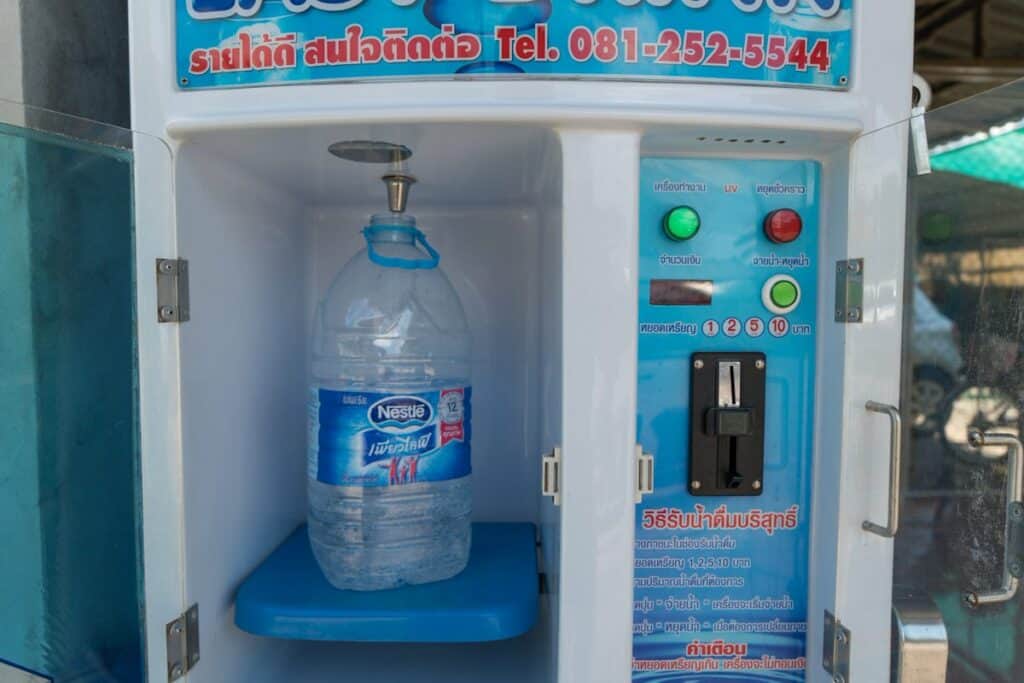
If you prefer the convenience of using tap water, consider investing in a portable water filter or purifier. There are various types available on the market, like the LifeStraw or the Sawyer Mini, which can effectively filter out bacteria, parasites, and other contaminants. This enables you to drink tap water safely, and you’ll always have access to clean water no matter where you are.
Finally, boiling tap water before consumption is an age-old method that can be an effective way of killing pathogens. Keep in mind that this only works against biological threats, not chemical pollutants (e.g., heavy metals). Boil the water for at least five minutes and let it cool before drinking, and remember to use boiled water for multiple purposes like brushing your teeth or preparing food.
Government Actions Towards Water Quality Improvements
As a visitor to Thailand, you might be curious about the government’s actions to improve water quality. Over the years, Thailand’s government has taken steps to enhance the quality of tap water for both residents and tourists like you.
One essential initiative has been the Metropolitan Waterworks Authority (MWA), which supplies clean water to the Bangkok metropolitan area and its surrounding provinces. The MWA has introduced advanced water treatment processes to ensure that the supplied water meets international standards. These processes include sedimentation, filtration, and chlorination, which remove contaminants and bacteria from the water.
In addition to MWA’s efforts, the Provincial Waterworks Authority (PWA) manages water supply and distribution for the rest of the country. The PWA follows strict guidelines to ensure water quality, and they collaborate with international organizations to adopt global best practices for water treatment.
Furthermore, the government established the Pollution Control Department (PCD) to monitor and control water pollution nationwide. The PCD implements stringent regulations for industries and organizations that generate wastewater. By enforcing proper waste management and treatment, the authorities aim to prevent harmful substances from contaminating water sources.
To summarize, the government of Thailand is committed to improving water quality through various agencies and initiatives. They continue to invest in and upgrade water treatment facilities, monitor pollution levels, and ensure strict adherence to regulations. As a result, the tap water in some areas of Thailand, especially in Bangkok, is safe for consumption. However, it’s always a good idea to use bottled water or invest in a portable water filter for your trip to ensure the best quality water for drinking and personal use.
International Assistance for Thailand’s Water Quality
You may be curious about the initiatives that international organizations have taken to improve Thailand’s water quality. The United Nations (UN) and the World Bank have been working closely with the Thai government to achieve better water management and cleaner tap water.
One noteworthy project is the World Bank’s Thailand’s Urban Water Services Improvement Project (TUWSIP). This initiative aims to benefit more than 1.8 million people by improving the access to clean water in selected urban areas. The project focuses on the rehabilitation and expansion of water supply services, ensuring that your tap water in these urban areas meets international water quality standards.
Another significant effort is made by the United Nations Development Programme (UNDP), which has assisted in developing a framework for a sustainable water management plan. This framework helps you to better understand the current water situation in Thailand and focus on improving water services nationwide effectively.
Furthermore, various non-governmental organizations (NGOs) have contributed to addressing water quality issues in Thailand’s smaller communities. With projects emphasizing education, training, and local engagement, these NGOs work to ensure that you and the local residents have access to clean, reliable tap water.
To sum up, while it is still not advisable to drink tap water directly in Thailand, you can appreciate the efforts made by international organizations to improve the water quality. With ongoing projects and support from the global community, it is expected that Thailand’s tap water situation will continue to get better. Keep in mind, though, that it’s always a good idea to use bottled water or a reliable water filter for your drinking needs while traveling in Thailand.
Frequently Asked Questions
Is it safe to cook with tap water in Thailand?
It is generally safe to cook with tap water in Thailand, as long as you bring the water to a rolling boil for at least one minute before using it. Boiling the tap water helps to kill any bacteria, viruses, or parasites that could cause illness.
What is the quality of tap water in Bangkok?
The tap water in Bangkok meets the governmental standards for water quality. However, due to the aging infrastructure and risk of contamination, it is often recommended to avoid drinking tap water directly. Instead, use bottled water or filtered tap water for drinking and brushing your teeth.
Can you brush your teeth with tap water in Thailand?
It is advised to avoid using tap water to brush your teeth in Thailand. Using bottled water or water that has been boiled and cooled for brushing your teeth is a safer option. This helps to prevent the potential risk of consuming bacteria or contaminants present in the tap water.
What is the drinking water quality standard in Thailand?
Thailand follows the World Health Organization (WHO) guidelines for drinking water quality. These guidelines outline various parameters that water must meet to ensure its safety for human consumption, including physical, chemical, and microbiological criteria.
Which bottled water is the best in Thailand?
There are several brands of bottled water available in Thailand. Some popular brands include Singha, Nestle, and Evian. Look for credible certification, such as the NSF Certification, ensuring that the water meets strict quality standards.
Is tap water in Phuket safe for consumption?
While the tap water in Phuket meets the government’s water quality standards, the infrastructure and risk of contamination can make it unsuitable for direct consumption. It is recommended to use bottled water or filtered tap water for drinking and brushing your teeth. This basically goes for all of Thailand.



